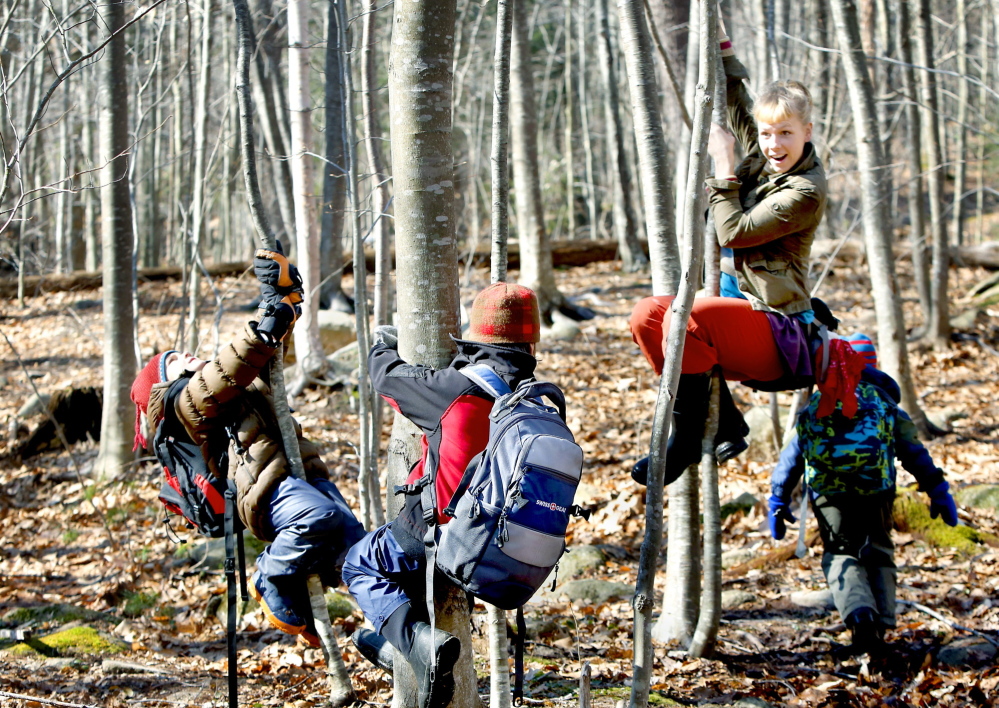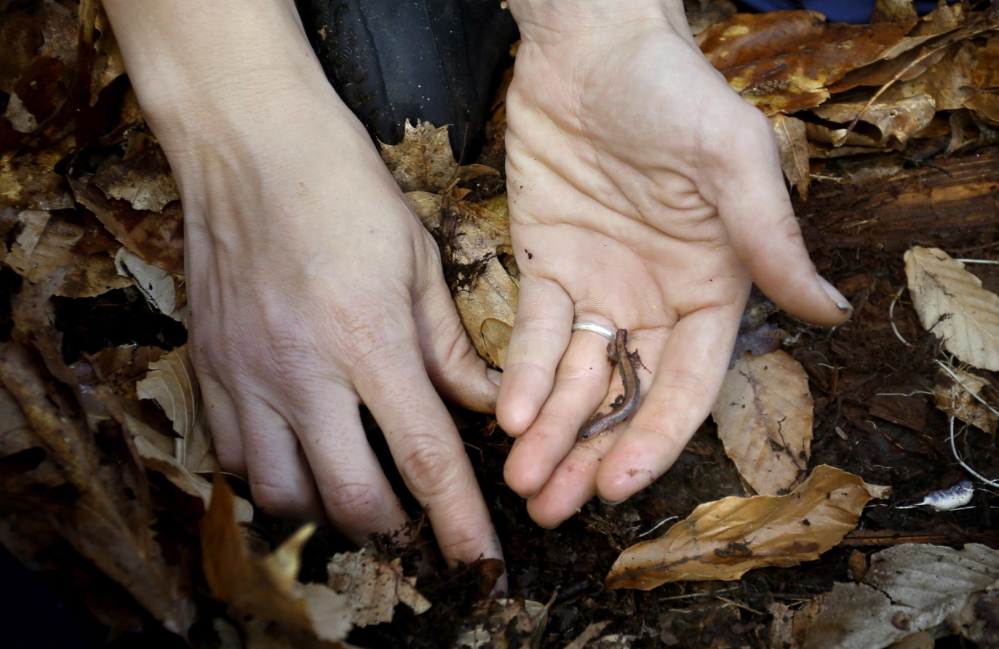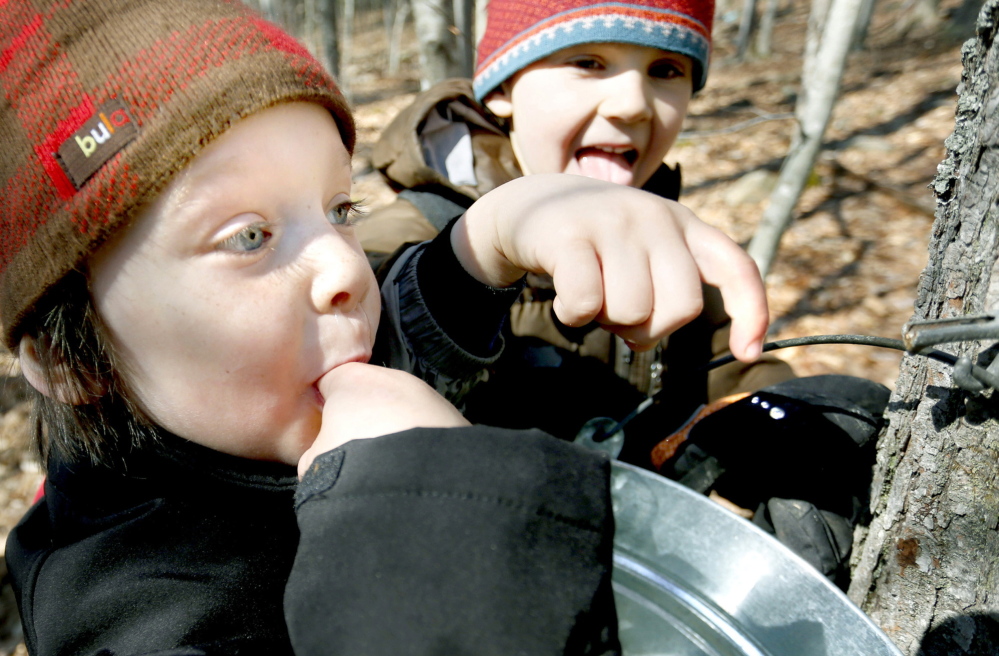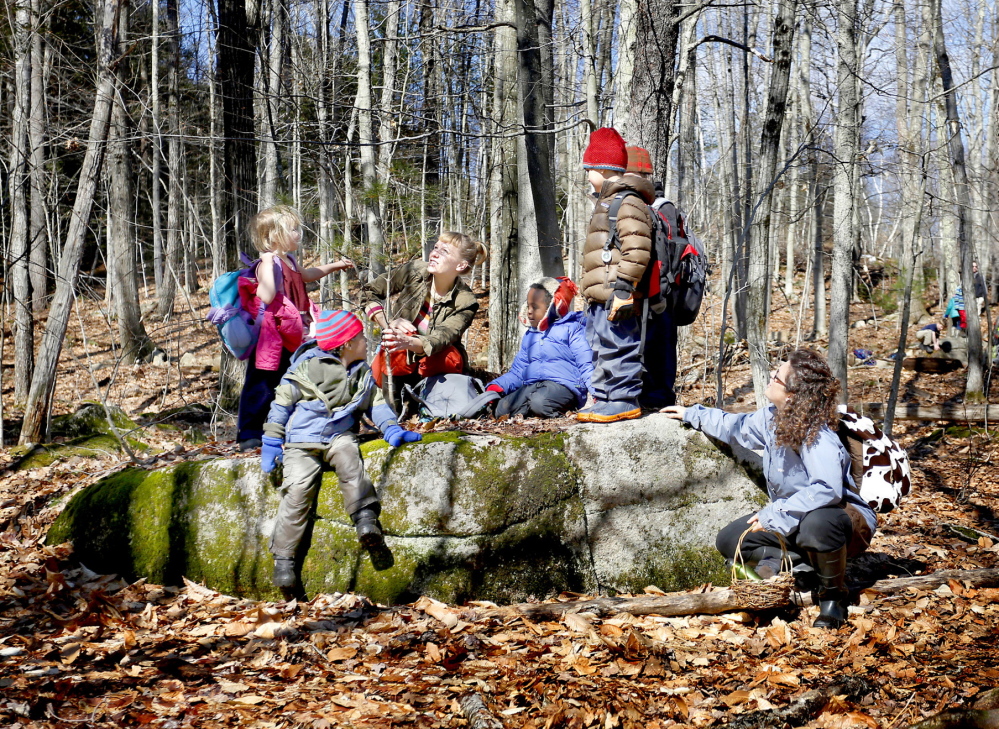CAPE NEDDICK — The naturalists who gathered in the woods around Mount Agamenticus last week enjoyed their usual morning class full of lessons and countless organic discoveries in nature.
They happened upon a salamander and watched its tail fall off, as often happens in nature; held a garter snake; and studied the nuptial chamber channels cut by bark beetles, learning whether the beetles in question were polygamous or monogamous.
Just another kindergarten class at White Pine Programs.
“I tell the staff that staff training starts at 4,” said director and co-founder Dan Gardoqui. “As in 4 years old.”
At the 15-year-old White Pine campus, a new kindergarten class this year is taking tiny Mainers out into the wild and teaching them how to survive there, and how to study the natural world. And unlike other nature-based preschool courses, the White Pine Forest Kindergarten class is outside all the time, which is what makes it a forest kindergarten.
Long taught throughout Europe, particularly in Germany, forest kindergarten is a class for young children held outside. A forest kindergarten, or waldkindergarten, connects children ages 3 and 6 with the natural world, and uses nature to better stimulate children’s senses and cognitive functions.
Instructors assist rather than lead. In waldkindergarten, children are the guides, the explorers and the decision-makers on what to study.
But forest kindergartens are new in the United States.
Cedarsong Nature School outside Seattle was the nation’s first. Started in 2008, Cedarsong aims to “encourage imaginative play, creativity, hand-eye coordination, balance, physical strength and mental clarity” by teaching exclusively outside.
Following the German model, Cedarsong allows instructors to ask questions but not provide answers. There is no lesson, no structure.
The result is that students develop confidence, curiosity and a connection with the natural world, said Cedarsong founder Erin Kenny.
“In Germany it’s called child-driven lessons, or flow learning,” said Kenny, a keynote speaker at this spring’s International Forest Schools Conference in South Korea. “Children move at their own pace and set the schedule. The teachers are there for support.”
This is the approach used at White Pine in York.
While there are other nature-based, preschool programs in Maine, no other is held outside all the time, Gardoqui said.
“We went on a family trip to Germany and went to investigate forest kindergartens. We couldn’t believe how many there were,” Gardoqui said.
“I think exposing kids to the natural world increases how much kids value the natural world.”
White Pine’s Forest Kindergarten now has five students but will grow to 12 in the fall, Gardoqui said.
Just an hour in the 12-acre woodland campus behind the White Pine headquarters was full of lessons, touching on woodcocks, bird song, winterberry leaves, maple syrup, amphibians and deer calls.
There are “probably 200 mini-lessons a day in the three hours,” said Annika Wisswaesser, who directs the class.
“Some aren’t lessons, they’re seeds of lessons. Sometimes I don’t give them the answer to their questions. It leaves it a mystery, and they continue searching for the answer. And there are different layers of experience: touching, smelling, seeing. They develop their observation skills.”
As the group wanders in the direction of a place where they can build a fire to make winterberry tea, the five children stop at a creek to watch it rush over a natural rock staircase.
One child digs out leaves to allow the water to run faster while a second collects sticks to dam the flow. Yet another 4-year-old climbs like a gymnast along a log that spans the creek, showing promise as a field biologist.
“It’s engineering,” Wisswaesser says with a smile toward the children, who are all dressed in rubber muck boots. “The natural world can do a better job teaching them than I can.”
Staff Writer Deirdre Fleming can be reached at 791-6452 or at:
dfleming@pressherald.com
Twitter: FlemingPph
Send questions/comments to the editors.







Success. Please wait for the page to reload. If the page does not reload within 5 seconds, please refresh the page.
Enter your email and password to access comments.
Hi, to comment on stories you must . This profile is in addition to your subscription and website login.
Already have a commenting profile? .
Invalid username/password.
Please check your email to confirm and complete your registration.
Only subscribers are eligible to post comments. Please subscribe or login first for digital access. Here’s why.
Use the form below to reset your password. When you've submitted your account email, we will send an email with a reset code.